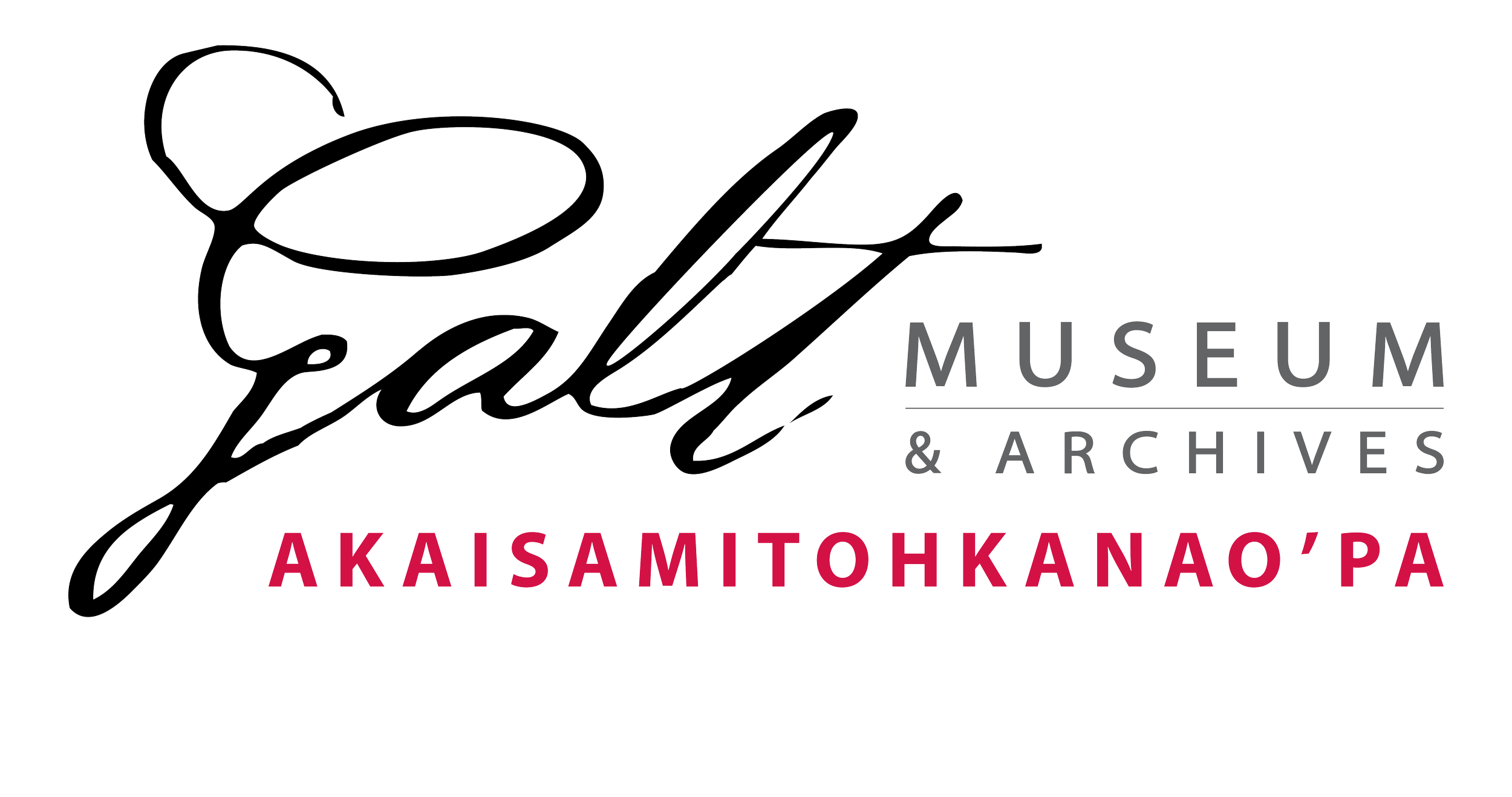MAY-AUG “Wednesdays at the Galt” Schedule
Twice monthly Program | First & Third WEDNESDAY monthly | 2:00-3:00 pm
From pioneers to young dancers, railway artists to railway stations, and communists to colours in fashion, Wednesdays at the Galt for ages 55+ at the Galt Museum & Archives presents a series of fascinating topics twice monthly through the spring and summer on the first and third Wednesday from 2:00 – 3:00 pm. Program admission also includes Discovery Hall access.
MAY 01 Portrait of a Métis Woman Dr. Doris MacKinnon presents her research on Marie Rose Delorme Smith (1861-1960), a woman of French-Métis ancestry born during the fur trade era, who spent her adult years as a pioneer rancher in the Pincher Creek area. Marie Rose raised 17 children, established a boarding house, took a homestead, and served as a medicine woman and midwife. In 1948, she published several articles in the early prairie ranch periodical, Canadian Cattlemen. Through close readings of these and her other writings, as well as interviews with her descendants, we get a rare glimpse into the life and identity of a Métis woman who negotiated the changing environment of the western plains during the late 1800s and early 1900s.
15 Artists on the Canadian Pacific Railway (ca. 1884-1914) Art Consultant, free-lance curator and writer Roger Boulet shares an illustrated presentation based on his exhibit "Vistas: Artist on the Canadian Pacific Railway." From 1884-1914, a number of painters and photographers received passes or other forms of assistance to visit the mountain country between Calgary and the Pacific Coast. Anxious to explore the new Canadian landscape now made accessible to the Canadian travelling public, most were not commissioned to do specific work. Rather, it was hoped that their work exhibited at prestigious exhibitions in Eastern Canada and in the United Kingdom would attract prosperous tourists.
JUN 05 First Nations Dancing École St. Mary’s Dance Troupe ranges from variety of diversities, such as age (Kindergarten to grade 6), ethnicities and experience, and practices and performs First Nations traditional and contemporary dance and music to a variety of audiences including schools, conferences, and many communities.
19 Galt Historic Railway Park: Historical Restoration Images of Canada’s Past Join Bill Hillen from the Great Canadian Plains Railway Society to learn about the restoration of Alberta’s oldest “Port of Entry”, the 1890 Coutts Sweetgrass International Customs House and Train Station. Hillen will touch on the economic importance to Lethbridge of Alberta’s only international railway trading link (owned by the Alberta Railway and Coal Co. of Lethbridge)—a unique railway artifact from the times of Father of Confederation Sir Alexander T. Galt, his son Elliott T. Galt and Charles Magrath.
JUL 03 Communists in the Sugar Beet Fields? The Industry in the 1930s The sugar beet industry has had a profound impact on southern Alberta. Historian and author Belinda Crowson focuses on one decade of that long history – the 1930s – and offers a glimpse into Southern Alberta’s “sugar-coated” history. Crowson has spent several years researching sugar beet history for her latest publication.
17 Locating the Trickster in First Nations, Métis, and Inuit Art Join artist Jaime Warn, a Chippewa/Muncey Delaware from southern Ontario now based in Lethbridge, for a candid approach to understanding both the art created by indigenous people of this country, and the people who created it. The trickster found in most FNMI cultures is a boundary crosser without definition, and often a shape shifter who educates the people on values for the greater good of all and communicates philosophies of healing and renewal important to many contemporary FNMI artists.
AUG 07 Downtown Walking Tour Join us for our annual historic tour of the downtown core. Meet at the museum front desk. Please wear sturdy walking shoes and weather-appropriate clothing. In the case of inclement weather we will instead hold an indoor virtual tour using photos.
21 The Right Chemistry: Colours in Fashion 1704-1918 From ancient times, one of the main markets for colour was the textile trade and, as such, the textile-dyeing industry was a major engine behind colour innovation. Anne Bissonnette, curator at the University of Alberta clothing and textiles collection, explains the development of chemistry in the 18th Century and its relation to the art and science of dyeing. From natural sources like plants and insects to the development of synthetic dyes, science and fashion are often intertwined.
The program runs from 2:00–3:00 pm; registration is not required. Admission is $5 per week for seniors [65+], $6 for adults, and includes exhibit access. The program is free for annual pass holders; annual passes are available at the Museum Store for $20 [seniors] and $15 [adults].
For details visit www.galtmuseum.com, call 403.320-3954, or email info@galtmuseum.com.
